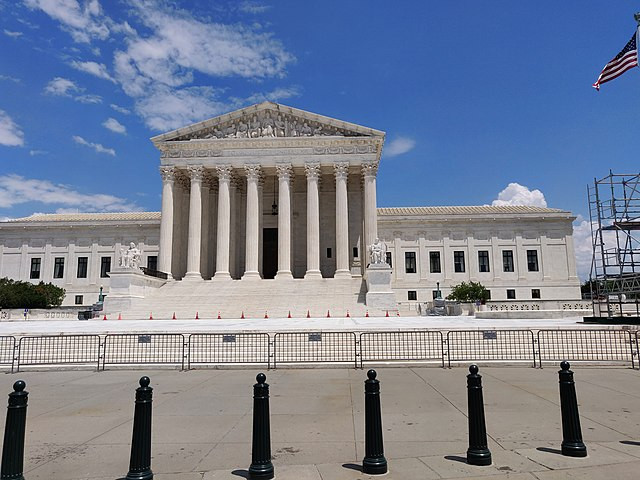The Supreme Court has declared the federal ban on bump stocks to be unlawful, a decision that has reignited the ongoing debate over gun control in the United States. The 6-3 ruling, which divided the court along ideological lines, represents a notable setback for the Biden administration's efforts to regulate firearms and accessories.
The decision centers around bump stocks, devices that enable semiautomatic rifles to fire at a rate similar to machine guns. The controversy over these accessories gained national attention following the 2017 mass shooting in Las Vegas, where gunman Stephen Paddock used bump stock-equipped firearms to kill 60 people and injure hundreds more during a country music festival.
Justice Clarence Thomas, writing for the majority, argued that a firearm equipped with a bump stock does not fit the federal definition of a machine gun. He stated that the law, which aims to regulate machine guns, cannot be extended to include bump stocks without overstepping statutory boundaries. "A firearm equipped with a bump stock cannot fire more than one shot per trigger function," Thomas wrote, asserting that the Bureau of Alcohol, Tobacco, Firearms, and Explosives (ATF) exceeded its authority by classifying bump stocks as machine guns.
The ruling elicited a sharp dissent from Justice Sonia Sotomayor, who criticized the majority for ignoring the practical effects of bump stocks. "When I see a bird that walks like a duck, swims like a duck, and quacks like a duck, I call that bird a duck," Sotomayor wrote, highlighting how bump stocks effectively transform semiautomatic rifles into automatic weapons. She underscored the danger posed by these devices, particularly in light of the Las Vegas shooting, which she cited in her dissent.
Despite the Supreme Court's ruling, the availability of bump stocks will remain limited. Eighteen states have independently banned the devices, and Congress retains the authority to enact federal legislation to address the issue. The ruling, however, has been met with disappointment and concern from gun control advocates.
"We've seen bump stocks cause immense destruction and violence," said Esther Sanchez-Gomez, litigation director at Giffords Law Center. "The majority of justices today sided with the gun lobby instead of the safety of the American people. This is a shameful decision."
The ban on bump stocks was initially imposed by the Trump administration following the Las Vegas massacre. Then-President Donald Trump personally advocated for the ban, which was implemented through an ATF rule that classified bump stocks as machine guns. This classification made the possession and sale of bump stocks illegal under the National Firearms Act of 1934, a law originally designed to curb the proliferation of machine guns during the Prohibition era.
The legal challenge to the bump stock ban was spearheaded by Michael Cargill, a Texas-based gun owner and licensed dealer. Cargill, who surrendered his bump stocks to the government after the ban, argued that the ATF's rule was an overreach. "Over five years ago I swore I would defend the Constitution of the United States, even if I was the only plaintiff in the case. I did just that," Cargill said in a statement following the ruling.
Conservative Justice Samuel Alito, while concurring with the majority, acknowledged the practical similarities between bump stock-equipped semiautomatic rifles and machine guns. He suggested that legislative action might be the appropriate remedy. "The horrible shooting spree in Las Vegas showed how a semiautomatic rifle equipped with a bump stock can have the same lethal effect as a machine gun," Alito wrote, calling for Congress to consider new legislation.
The Supreme Court's decision highlights the broader ideological battle over gun control in the United States. The conservative-majority court has previously supported gun rights in significant rulings, including a 2022 decision affirming the right to carry handguns outside the home. However, the court has also indicated potential limitations, as seen in a case involving a ban on firearm possession by individuals accused of domestic violence.






